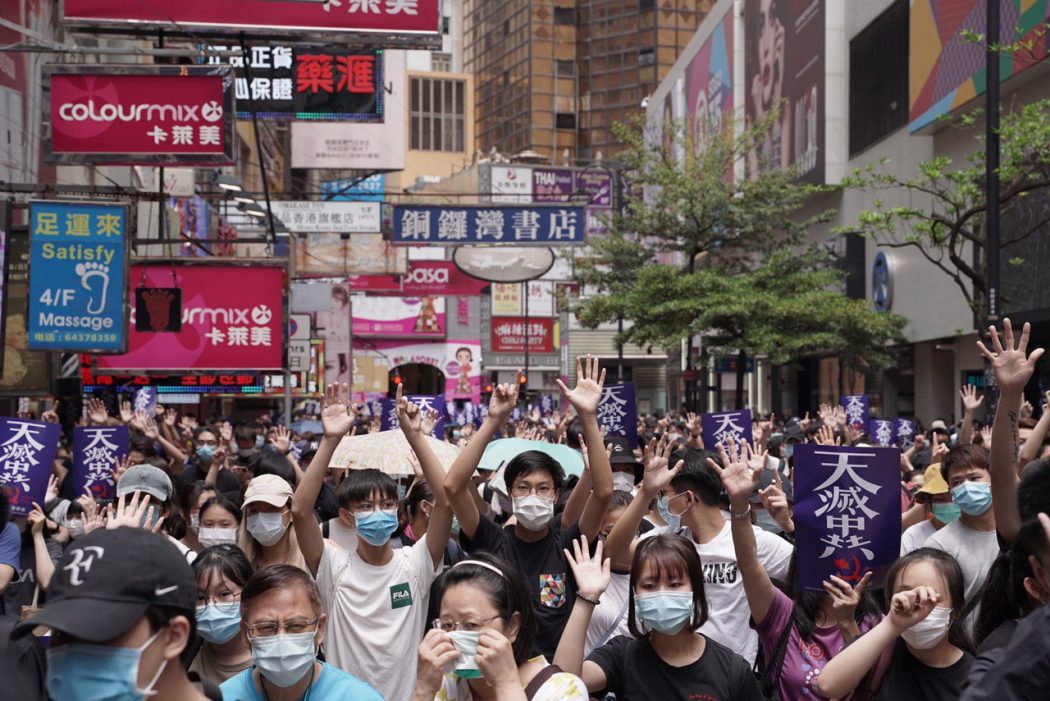British multinational banks HSBC, Standard Chartered, and conglomerate Jardine Matheson group have publicly supported Beijing’s plan to promulgate national security laws in Hong Kong. It came after Chinese state media warned HSBC that it would “lose all its clients” if it stayed silent on the issue.
On Wednesday, the “HSBC China Corporate account” on WeChat posted a photo of the bank’s Asia-Pacific Chief Executive Peter Wong signing a petition to back China’s resolution to punish secession, subversion, terrorism and foreign interference in the city.

Wong, who is also the chair of the Hong Kong General Chamber of Commerce, told state-run Xinhua agency that the local business sector generally deem the Hong Kong national security legislation to be a move in the “correct direction.” He said many believe the laws would bring “lasting prosperity and stability” to Hong Kong and ensure its status as a global financial hub.
He also voiced opposition to impending sanctions from the US on Hong Kong. The US announced last Friday that the city would be stripped of its economic and trade privileges, as it is no longer considered autonomous from China.
See also: Artists deny signing petition backing Hong Kong national security law
“Sanctions not only hurts Hong Kong, it hurts the US too, and the entire Asia-Pacific region… As the Covid-19 pandemic is hitting the world economy, we should work together to boost the economy, instead of hurting each other” Wong said.

It was the first time for the bank revealed its stance on Beijing’s unprecedented move, which has alarmed democrats, civil society groups and trade partners, as such laws have been used broadly to silence and punish dissidents in China.
The statement came after state-run mouthpiece People’s Daily shared an article by Beijing Daily on WeChat, titled “HSBC will eventually lose all clients” two days previously. The article slammed the banking giant for “earning China’s money” and yet “pretend to be deaf and dumb” on the issue of Hong Kong’s national security legislation. It warned the British multinational investment bank that it would “pay a more painful price,” if it did not clear its stance.
In response, pro-democracy activist Joshua Wong said firms were being forced to “kowtow” to Beijing: “HSBC provides a vivid example demonstrating how China will use the national security law as new leverage for more political influence over foreign business community in this global city, ” he tweeted.
Under pressure
Former Hong Kong leader Leung Chun-ying also urged HSBC to speak up on the security laws last week, saying that government officials and mainland consultative body delegates should be wary about keeping their accounts at the bank.

Another London-based bank Standard Chartered voiced similar support for the legislation in a statement released on Thursday: “We believe the national security law can help maintain the long term economic and social stability of Hong Kong.”
Multinational conglomerate Jardines showed its support by placing full page advertisements in state-owned newspaper Ta Kung Pao and China Liason Office-owned Wen Wei Po on Wednesday.
The company said the establishment of legal framework to safeguard national security laws is “very important,” adding that the company is “rooted” in Hong Kong and would keep investing.
Last November, HSBC was also in the spotlight after it suspended an account for Spark Alliance HK – an advocacy group that raised money for jailed pro-democracy protesters. Police said the money was used for money laundering.
